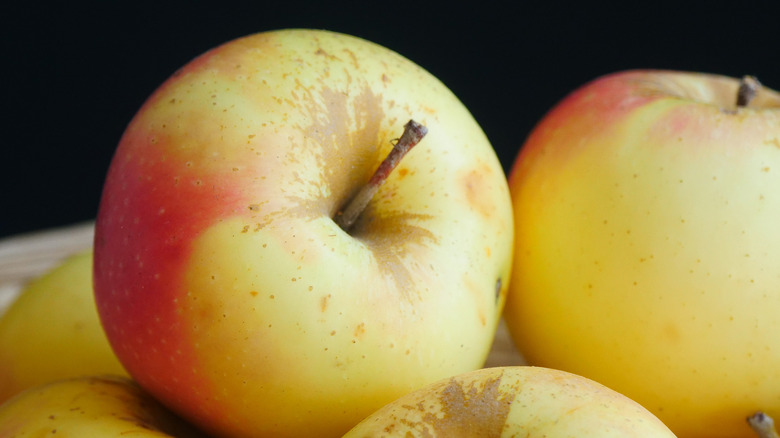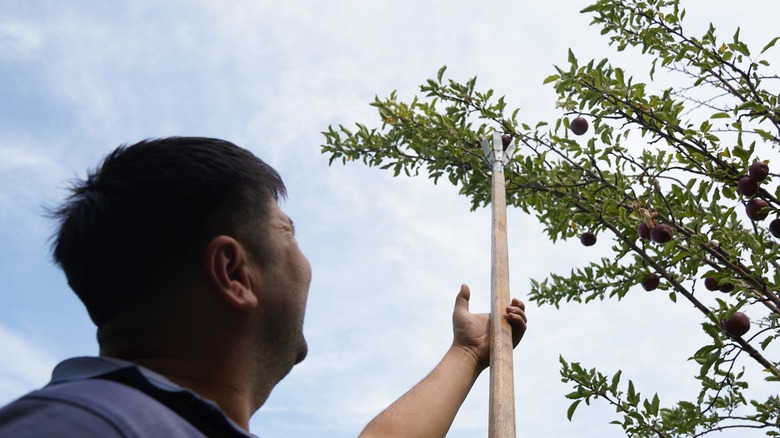How The Fall Of The Soviet Union Decimated Kazakhstan's Prized Apple Crop
Over 30 years after the dissolution of the Soviet Union, the effects of those 69 years are still being felt today. One need only look at headlines concerning the Russia/Ukraine War to see evidence of this. The Soviet Union existed from 1922 to 1991, with most of its power being consolidated and expanded in the aftermath of WWII. The USSR not only defined 20th-century Russia but had a massive influence on other countries like Belarus, Latvia, Hungary, The Czech Republic, and Kazakhstan, according to History.
By the time of the formation of the Soviet Union in the 1920s, Kazakhstan had already been part of Russia for several hundred years (via Britannica). It was a close relationship, with Kazakhstan being the last state to leave the USSR. And while the fall of the Soviet Union may be seen as a net positive for world history, the resulting change in Kazakhstan almost cost the country one of its most prized cultural crops: wild apples.
The ancestral home of the apple
It is not a well-circulated fact, but the wild apples that gave rise to modern pomology can trace their roots back to the Tian Shan mountains of southern Kazakhstan. The variety is called Malus sieversii, and it has grown in the wilds of Kazakhstan for thousands of years. These apples remained a Soviet secret for generations, with carts and carts being delivered to Moscow to satisfy Russian cravings (via the EFE on YouTube). However, with the fall of the Soviet Union in 1991, the western orchardists finally got the opportunity to visit this almost mythical land for themselves.
As John Selborne, Earl of Selborne, told BBC Future: "It is a remarkable sight," he says. "You go into these forests and you find that the apple is the predominant species. It's totally chaotic because everything is intertwined, they're difficult to walk through." However, these forests and gardens of apples have been massively threatened by the rapid economic upswing resulting from the end of the Soviet Union. Apple gardens were cut down to build luxurious villas, utterly decimating Kazakhstan's apple crop. Despite the loss, there are still holdouts seeking to re-establish the country's place as a prized apple-growing nation. A combination of entrepreneurship, proper cultivation, and maintenance is required to conserve the wild apples of the Tian Shan. And the ancestral home of this fruit that is loved throughout the world deserves saving.

